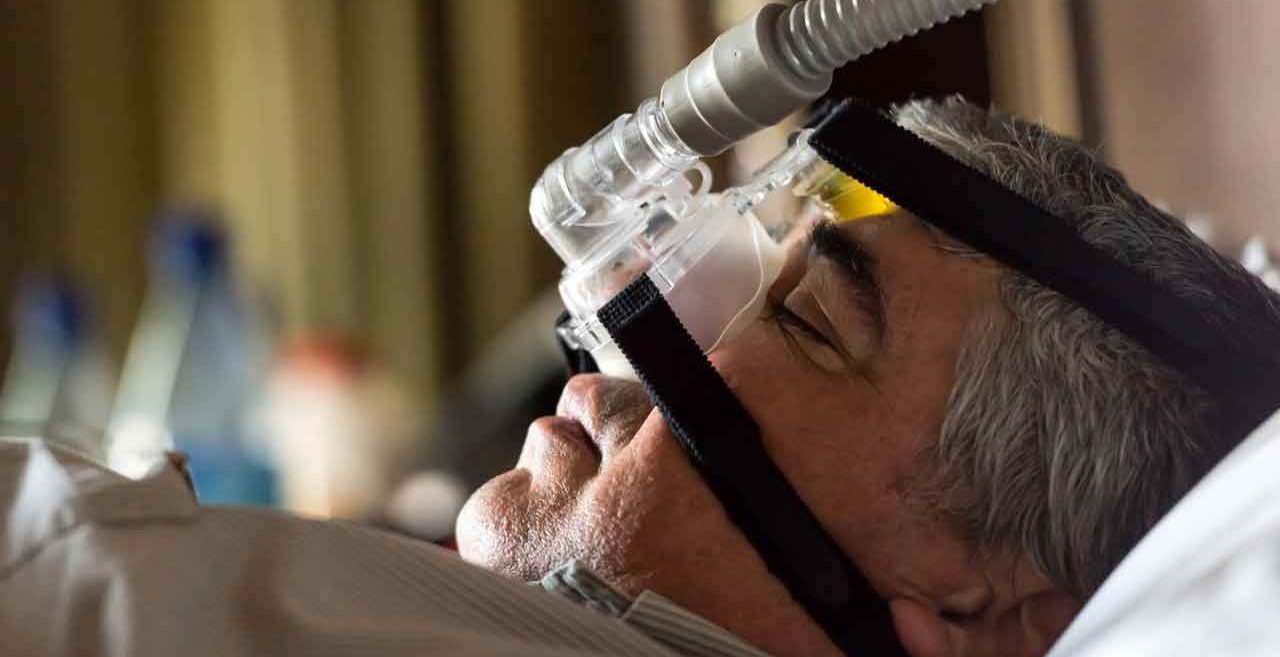Home Sleep Apnea Testing

A cheaper way to find out if you have a common sleep problem.
We think of people with sleep apnea as obese middle-aged men who snore abominably and fall asleep in meetings. But you can have sleep apnea even if you're not obese — or male. Among women, the problem is often underdiagnosed because their symptoms are less obvious. Sleep apnea, when you frequently stop breathing during sleep, can occur for many reasons, and you won’t know it. Now it’s becoming easier and cheaper to get a useful home sleep apnea test.
You might start by asking a bed partner if you snore. Next try one of these four home sleep apnea testing questionnaires: the American Sleep Apnea Association's own Snore Score, the Epworth Sleepiness Scale, the Berlin Sleep Questionnaire, and STOP-BANG.
YOU MIGHT ALSO LIKE: Do You Snore? Don’t Ignore that Rattling Sound!
To diagnose your problem and decide how to treat you, a doctor needs data on what happens to your breathing. People get tested wired up in a bed in a sleep center — and if the test revealed a problem, you’d go back on another night to test out a continuous positive airway pressure, (CPAP) machine that injects air into your lungs.
The test and the equipment are both expensive, and, to save money, insurers may require you to go to an out of the way center and supply you with a particular machine.
Some insurers ask doctors to make a decision based on less information provided from tests you can do at home. For people without insurance or a high deductible, getting a test at home will be far cheaper. A quality home sleep apnea test should tell doctors what they need to know, according to a January 2017 multi-site study. In the study, all of the patients had a sleep study performed in a laboratory, and were randomly assigned to three groups. In the first group, the patients' doctors received all of the information from the lab, comparable to a sleep center. In group two, their doctors received only the kind of data typically monitored in home tests. In the third, they received even less information, mimicking the simplest type of at-home study. The researchers collected information on the diagnoses the physicians made and tested how well the patients felt after four months of treatment.
It turned out that the diagnoses and treatments recommended were similar across the three groups, and patients’ symptoms improved in all the groups as well. There was no difference between the outcome based on data from a full lab study or the higher quality home sleep apnea testing; the study did not draw a conclusion about whether the simplest tests were as effective.
It may make sense to work with a doctor you know, who will write a prescription for the test. You can buy equipment to test yourself at home from a variety of vendors, who also may sell CPAPs that your insurance may cover. At EasyBreathe, a home test costs $299, and you can work with doctors remotely for another $100. Other options: InstantDiagnosis, Registered Portable Monitoring, and Singulair Sleep.
Don’t underestimate the effect of poor sleep quality and soldier on suffering! If you do have sleep apnea, treatment could help relieve a range of problems, including chronic pain, anxiety, and being inattentive. You also don’t necessarily need a machine with a full mask: many people use only a nose mask. Other solutions can do as well as a CPAP — but first you need a diagnosis.
YOU MIGHT ALSO LIKE: You May Have Sleep Apnea if You’re Depressed
Updated:
April 08, 2020
Reviewed By:
Janet O’Dell, RN